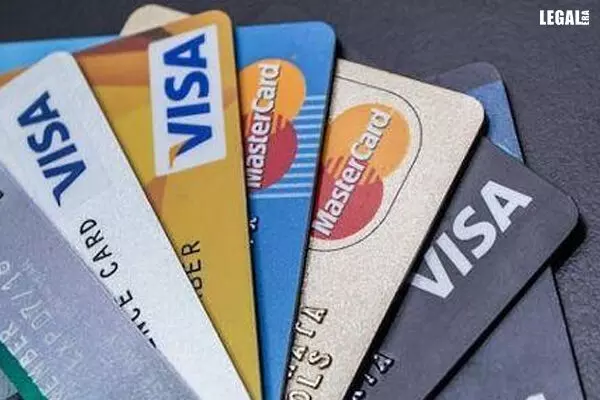- Home
- News
- Articles+
- Aerospace
- AI
- Agriculture
- Alternate Dispute Resolution
- Arbitration & Mediation
- Banking and Finance
- Bankruptcy
- Book Review
- Bribery & Corruption
- Commercial Litigation
- Competition Law
- Conference Reports
- Consumer Products
- Contract
- Corporate Governance
- Corporate Law
- Covid-19
- Cryptocurrency
- Cybersecurity
- Data Protection
- Defence
- Digital Economy
- E-commerce
- Employment Law
- Energy and Natural Resources
- Entertainment and Sports Law
- Environmental Law
- ESG
- FDI
- Food and Beverage
- Gaming
- Health Care
- IBC Diaries
- In Focus
- Inclusion & Diversity
- Insurance Law
- Intellectual Property
- International Law
- IP & Tech Era
- Know the Law
- Labour Laws
- Law & Policy and Regulation
- Litigation
- Litigation Funding
- Manufacturing
- Mergers & Acquisitions
- NFTs
- Privacy
- Private Equity
- Project Finance
- Real Estate
- Risk and Compliance
- Student Corner
- Take On Board
- Tax
- Technology Media and Telecom
- Tributes
- Viewpoint
- Zoom In
- Law Firms
- In-House
- Rankings
- E-Magazine
- Legal Era TV
- Events
- News
- Articles
- Aerospace
- AI
- Agriculture
- Alternate Dispute Resolution
- Arbitration & Mediation
- Banking and Finance
- Bankruptcy
- Book Review
- Bribery & Corruption
- Commercial Litigation
- Competition Law
- Conference Reports
- Consumer Products
- Contract
- Corporate Governance
- Corporate Law
- Covid-19
- Cryptocurrency
- Cybersecurity
- Data Protection
- Defence
- Digital Economy
- E-commerce
- Employment Law
- Energy and Natural Resources
- Entertainment and Sports Law
- Environmental Law
- ESG
- FDI
- Food and Beverage
- Gaming
- Health Care
- IBC Diaries
- In Focus
- Inclusion & Diversity
- Insurance Law
- Intellectual Property
- International Law
- IP & Tech Era
- Know the Law
- Labour Laws
- Law & Policy and Regulation
- Litigation
- Litigation Funding
- Manufacturing
- Mergers & Acquisitions
- NFTs
- Privacy
- Private Equity
- Project Finance
- Real Estate
- Risk and Compliance
- Student Corner
- Take On Board
- Tax
- Technology Media and Telecom
- Tributes
- Viewpoint
- Zoom In
- Law Firms
- In-House
- Rankings
- E-Magazine
- Legal Era TV
- Events
Central Government Issues Notification: Incorporates International Credit Card Spending Under Liberalized Remittance Scheme

Central Government Issues Notification: Incorporates International Credit Card Spending Under Liberalized Remittance Scheme
The Ministry of Finance through its Department of Economic Affairs has amended rules under the Foreign Exchange Management Act (FEMA) to incorporate international credit card spending under the Liberalized Remittance Scheme (LRS).
In other words, credit card spending in a foreign currency will now be a part of LRS's annual limit of $2,50,000 per person. Further, it will be subject to tax collected at source (TCS).
The development came after the Finance Minister Nirmala Sitharaman, while moving Finance Bill 2023 in the Parliament, asked the Reserve Bank of India (RBI) to look into ways to bring credit card payments on overseas tours under LRS.
Consequently, the Ministry of Finance issued a notification mentioning to omit Rule 7 of the Foreign Exchange Management (Current Account Transactions) Rules, 2000. They shall come into force on the date of their publication in the Official Gazette, according to the notification.
Therefore, the special privilege that international credit cards enjoyed earlier will no longer be available and they will be treated at par with other money transfer instruments. The only exception to this amended LRS rule will be applicable for payments made through money held in RFC account in a bank in India.
Section 7 states, “Nothing contained in rule 5 shall apply to the use of International Credit Card for making payment by a person towards meeting expenses while such person is on a visit outside India.”
Rule 5 of the Foreign Exchange Management (Current Account Transactions) Rules, 2000, states, “Every drawal of foreign exchange for transactions included in Schedule III shall be governed as provided therein: Provided that this rule shall not apply where the payment is made out of funds held in Resident Foreign Currency (RFC) Account of the remitter.”
Now, with the omission of rule 7 of Foreign Exchange Management (Current Account Transactions) Rules, 2000, the credit card payments for transactions falling under Schedule III transactions will come under LRS.


